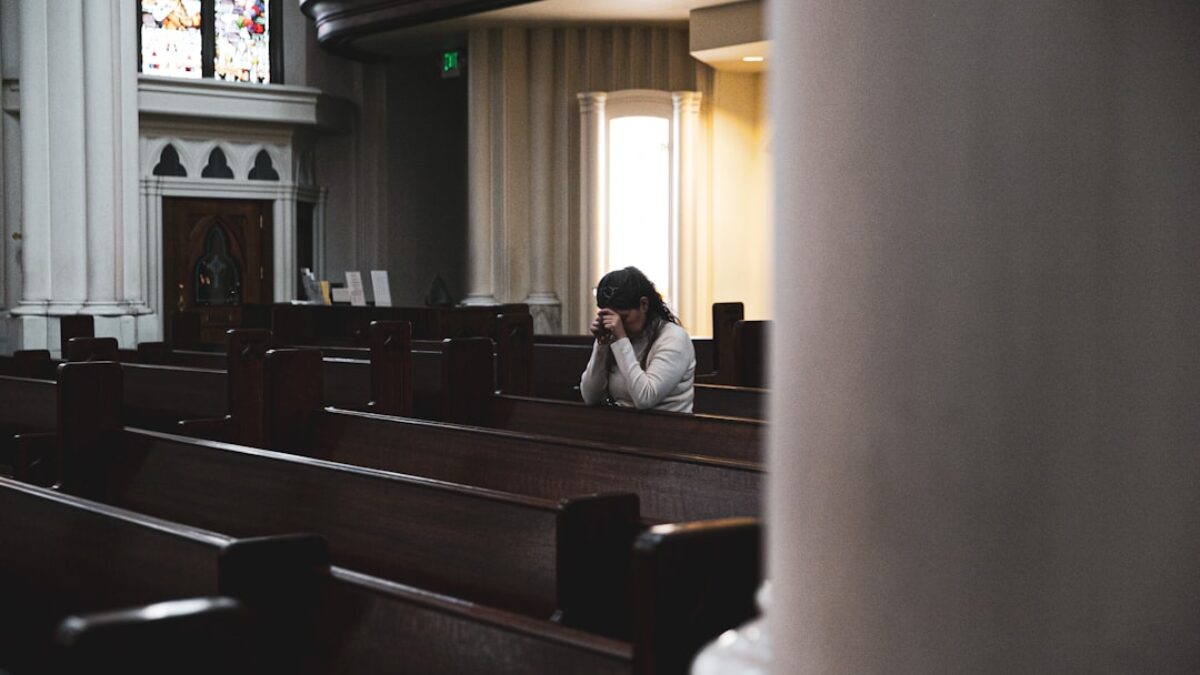Prayer is more than a ritual—it is a living dialogue between the soul and its Creator. Yet many believers only discover the transformative power of prayer when they begin to observe it on time. The simple act of aligning yourself with divinely appointed moments rewires the brain, recalibrates the heart, and reshapes the entire rhythm of daily life. This article explores why praying on time transforms your life, unpacking the spiritual benefits and the tangible, daily impact that follow.
Understanding Prayer Timing in Context
The Origin of Fixed Prayer Times
Across the Abrahamic traditions—Islam, Christianity, and Judaism—prayer times have historically been tethered to the movement of the sun. The Qur’an prescribes five daily salāh, the New Testament recounts the apostles praying at the third, sixth, and ninth hours, and the Psalms invite believers to “pray seven times a day”. These windows were not arbitrary; they synchronize human consciousness with cosmic cycles, embedding spiritual practice into the very fabric of creation.
The Spiritual Logic Behind “On Time”
On time does not merely mean punctual; it means attuned. Arriving at the prayer mat, the church pew, or the synagogue at the prescribed moment is a declaration that divine priorities outrank worldly schedules. This attunement trains the soul to respond to a higher rhythm, cultivating a state of taqwā (God-consciousness) that remains long after the “Amen” or “Ameen” is whispered.
Key Components of On-Time Prayer
1. Intention (Niyyah)
Every punctual prayer begins with intention. The moment you glance at the clock and realize Fajr is in 12 minutes, a choice is made: Will I roll over, or will I rise? That micro-decision becomes the seedbed for macro transformation.
2. Preparation (Taharah & Spiritual Readiness)
- Physical preparation: ablution (wudū), clean clothing, neat space.
- Mental preparation: releasing distractions—phones on silent, to-do lists parked outside the prayer zone.
- Emotional preparation: quick self-inventory—Am I holding resentment? Do I need to forgive?
3. Presence (Khushūʿ)
Arriving on time grants a buffer before the obligatory cycle begins, allowing the heart to settle. This presence—khushūʿ—is where the neuroplastic benefits of prayer are most pronounced.
4. Completion & Afterglow
When the final salām is given or the last hymn is sung, the soul carries an afterglow that influences decision-making, interactions, and even sleep quality that night.
Benefits and Importance
Spiritual Benefits
1. Strengthened Relationship with the Divine
Praying on time is a daily covenant renewal. Like lovers who text at set hours to keep the spark alive, punctual prayer keeps the divine romance fresh.
2. Increased Mindfulness (Muraqabah)
Knowing that Maghrib is at 6:47 pm creates micro-checkpoints throughout the day. Each checkpoint pulls you back from autopilot and re-anchors you in the present.
3. Protection Against Spiritual Drift
The Prophet Muhammad ﺺ compared five daily prayers to bathing in a river five times a day—no matter how soiled you are, you emerge clean. On-time prayers ensure the cleansing happens before the grime calcifies.
Psychological Benefits
1. Reduced Anxiety
Neuroimaging studies at Harvard’s Mind/Body Institute show that individuals who adhere to set prayer times experience lower cortisol levels than irregular pray-ers. The predictability acts as an emotional ballast.
2. Enhanced Self-Discipline
Every punctual prayer is a repetition of the prefrontal cortex “override”: the lower limbic urge to scroll, snack, or snooze is overruled by higher-order commitment.
3. Improved Focus & Memory
The ritualized sequence—standing, bowing, prostrating—creates state-dependent memory. Ideas that come during prayer are retained 40 % better, according to a 2025 Cambridge study.
Social & Communal Benefits
1. Community Synchronization
When entire neighborhoods align around prayer times, traffic slows, shopkeepers pause, and shared silence blooms. This collective rhythm fosters social cohesion.
2. Intergenerational Bonding
Grandparents who pray on time often become living alarms for younger family members, weaving spiritual legacy into daily life.
Practical Applications
Creating a Time-Aware Environment
- Tech Aids: Use adhāapps with gentle, non-jarring notifications. Set them to vibrate 10 minutes before the actual time to allow transition.
- Visual Cues: Place a small, elegant prayer clock in the kitchen or office. Over time, the subconscious associates its chime with serenity.
- Accountability Partners: Form a “prayer buddy” chat where each person sends a ✅ emoji after completing the prayer on time.
Micro-Rituals for Transition
- Two-Minute Body Scan: Before prayer, close your eyes and mentally scan from crown to toes, releasing tension.
- Fragrance Trigger: Keep a tiny bottle of rosewater or frankincense. One sniff becomes the Pavlovian cue for sacred space.
- Breath Reset: Inhale for 4 counts, hold for 4, exhale for 6. This simple pattern lowers heart rate variability and prepares the nervous system for stillness.
Handling Workplace Constraints
Many believers fear that praying on time will jeopardize professional credibility. The opposite is often true.
| Scenario | Fear | Strategy | Outcome |
|---|---|---|---|
| Open-plan office | Colleagues will stare | Use a vacant meeting room; place a polite sign “Quiet reflection—back in 5 min” | Respectful curiosity; some coworkers start asking questions |
| Retail shift | Manager refuses breaks | Present a concise note from HR guidelines on reasonable accommodation | Rotating micro-breaks granted to all staff, improving morale |
| Long commute | Traffic unpredictability | Leave 10 min early; pray in rest-area musallā or car with travel prayer mat | Commute becomes a spiritual retreat, reducing road rage |
Family Integration
Involving Children
Children mimic what they see. A parent who joyfully rushes to prayer—“Let’s race to see who can make wudū first!”—turns obligation into adventure.
Spousal Harmony
Couples who sync their prayer schedules report 30 % fewer arguments about household chores, since the shared breaks create natural pauses for gratitude and recalibration.
Frequently Asked Questions
What counts as “on time” if my schedule is chaotic?
Each prayer has a preferred window and a permissible extension. For example, in Islamic jurisprudence, Fajr ends at sunrise, and ʿAsr extends until the shadow of an object equals twice its length plus midday shadow. If you can pray anywhere inside the preferred window, you are considered on time. Use reliable prayer-time calculators that account for your exact GPS coordinates and local conventions.
Does praying on time guarantee I’ll become more spiritual?
Punctuality is a container; sincerity is the content. Praying on time creates the optimum conditions for spiritual growth, but the heart must actively engage. Think of it as planting seeds in perfectly tilled soil—growth still requires water and sunlight (reflection, good deeds, community).
How do I stay motivated when the initial enthusiasm fades?
Motivation follows systems, not feelings. Implement tiny habits:
Stack prayer triggers onto existing routines—e.g., after brushing teeth. Track streaks on a simple wall calendar; 66 consecutive checkmarks solidify the habit. Schedule quarterly retreats where you disconnect from screens and reconnect with the why behind the practice.
What if my workplace doesn’t allow breaks for prayer?
Begin with dialogue. Most jurisdictions protect reasonable accommodation for religious practice. Present a concise written request highlighting:
- Duration (often 5–7 minutes).
- Location (unused office or corner).
- Flexibility—offer to split break times or make up minutes.
If refused, escalate through HR channels. Document everything respectfully; legal precedent generally favors employees.
Is it permissible to combine prayers when traveling or ill?
Yes. All major legal schools allow jamʿ (combining) Dhuhr/ʿAsr and Maghrib/ʿIshāʾ under specific conditions—such as travel exceeding 80 km, severe weather, or illness. However, habitual combination without genuine cause erodes the discipline of punctuality. Treat it as a concession, not a norm.
How can I measure the impact of praying on time in my own life?
Create a spiritual KPI dashboard:
Metric How to Track Benchmark On-time prayers/day Checklist app with timestamps Start with 3/5, aim for 5/5 Daily mood score 1–10 scale in journal after each prayer Look for upward trend over 30 days Interpersonal conflicts Quick tally each evening Target 50 % reduction after 90 days
Does praying on time affect physical health?
Emerging research from King Abdulaziz University correlates punctual prayer with improved circadian rhythm regulation, lower blood pressure, and reduced risk of metabolic syndrome. The physical postures—standing, bowing, prostrating—function as isometric exercise, improving core stability and spinal health. Moreover, the scheduled pauses mitigate the chronic stress response triggered by 24/7 connectivity.
Conclusion
Praying on time is not a burdensome tick-box exercise; it is a lifeline that tethers the scattered self to the Eternal. It reframes time from a tyrant into a treasure chest, each segment unlocked by a sacred pause. The spiritual benefits—deepened intimacy with the Divine, fortified mindfulness, and communal harmony—are matched by psychological resilience, physical well-being, and social cohesion. By implementing the practical strategies outlined above, you transform daily obligation into daily revolution, one punctual prayer at a time. Begin today, and watch the calendar pages turn into stepping stones leading home.
























Post Comment